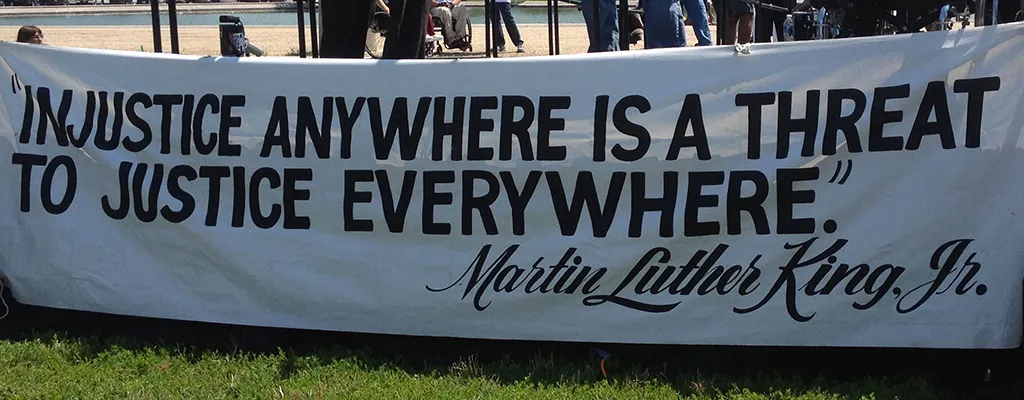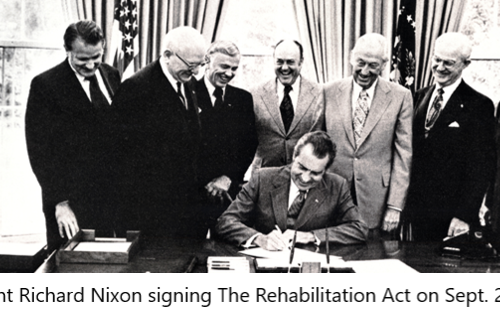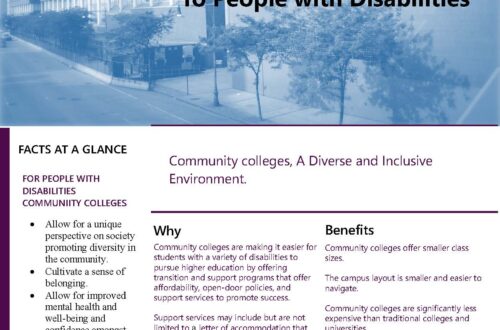Project 2025: A Threat to Disability Rights in America
By: Michael Jung
Over the past year, a roadmap named Project 2025 was written for a hypothetical Trump return to the White House. Project 2025 suggests making hundreds of changes to government with the stated goal of giving Americans more freedom. However, those who have looked at the policy proposals offered by Project 2025 have many Americans concerned. This is no different for disabled Americans. In this proposed plan, there are proposals that leave Americans with disabilities to needlessly fight for themselves and make everyday life unnecessarily dangerous. Below are a few examples of this.
Our first example is on page 468, which states the following:
- “Add work requirements and match Medicaid benefits to beneficiary needs. Because Medicaid serves a broad and diverse group of individuals, it should be flexible enough to accommodate different designs for different groups. For example, CMS should launch a robust “personal option” to allow families to use Medicaid dollars to secure coverage outside of the Medicaid program. CMS should also:
1. Clarify that states have the ability to adopt work incentives for able-bodied individuals (similar to what is required in other welfare programs) and the ability to broaden the application of targeted premiums and cost sharing to higher-income enrollees.
2. Add targeted time limits or lifetime caps on benefits to disincentivize permanent dependence.”
Disregarding the idea of work requirements (which carves out an exception for those who are physically unable to perform work), this policy has a very large pitfall. If this policy is implemented as written, it is entirely possible for those unable to work to lose their medicaid benefits simply because they have outlived their lifetime cap on benefits or passed their targeted time limits. There are no exceptions for disability and advanced age carved out for targeted time limits and lifetime caps. This would negatively affect all Americans, but especially ones that cannot provide for themselves due to disabilities. Even if we are to assume that dependence on welfare is a serious problem in America, I suspect the writers of this policy did not mean to revoke benefits to Americans simply due to them living long lives.
The next example comes from page 596, which states:
- “Congress (and DOL, in its enforcement discretion) should exempt small business, first-time, non-willful violators from fines issued by the Occupational Health and Safety Administration.”
Let’s break this one down. This exemption for small businesses would give them a get out of jail free card for any first violation they may commit. While this may sound good on the surface, thinking about this a little more critically gives us a bleaker picture. If this policy is implemented as written, it will allow companies to harm their customers with no consequences. I cannot completely know what the authors’ intentions were when creating this policy, but its a good bet this was intended for cases such as a table being 1 inch lower than regulation and other minor infractions. By giving a blanket pass however, this exception can apply to infractions that can cost lives, such as making a fire exit inaccessible and a shoddily built access ramp crumbling. These infractions pose a real life threatening danger to Americans, especially those with disabilities. Since proof is on the plaintiff to prove a small business willingly ignored violations, it will be extremely difficult to prosecute bad actors. Before we move on, I want to make something clear. I do not have anything against anyone who wants to start a small business. In fact, the vast, vast majority of small business owners are honest people. There are many small business owners who unwillingly make minor infractions that in the grand scheme, do not matter. But giving an free pass for any infraction put lives which literally depend on these regulations at a unnecessary risk. I will close with this: Would you want to visit a new business that maybe has proper sanitation and might have fire exits?
Lastly, on page 336, Project 2025 states:
- “The next Administration should immediately commence rulemaking to rescind the Equity in IDEA regulation. No replacement regulation is required.”
While the stated goal of this change is noble, the rationale for this change does not make sense. There has been conflicting data on if minorities are over or underrepresented within special education, but let us assume that minorities are underrepresented in special education, as asserted by the authors themselves. On the same page, the authors state: “black students are actually underrepresented in special education once adequate statistical controls are made.” Would it not be logical then, to increase support of equity initiatives in special education? If it is true that minorities are underrepresented in special education, the solution would be to beef up equity in special education rather than to eliminate it entirely. The authors show the failure of IDEA money spent on equity initiatives translating into actual equity in special education as justification to eliminate equity initiatives. That argument does not make sense. It makes no sense to take money away allocated to solve a problem that the authors themselves identified. In fact, the amount of funding could be the very reason equity initiatives are failing. Perhaps the money allocated could be spent wiser, thus allowing for cuts. The equity initiatives could be taken in a different direction. Funding for these initiatives could be increased. There are many ways one can go about solving this problem. But eliminating equity initiatives and taking away funding will not solve the problem. In fact, eliminating initiatives and funding is likely to make the problem worse. Most troublingly for the authors, this proposal invites criticism, whether you believe it is warranted or not, that they prioritize reducing government spending over achieving equality for disabled students in America.
I do not condone personally attacking those who created this plan. The acceptance of personally attacking individuals for their beliefs is part of what make politics so toxic in modern times. Rather, I am making a critique of what I see as short-sighted policy proposals that deprive millions of disabled Americans the support they need to live a free, independent life. We can debate on whether the Federal government has failed entrepreneurs with excessive regulations or failed everyday Americans by getting too involved in their daily lives until the end of time. But if the proposals Project 2025 lays out become reality, millions of disabled Americans will no longer be able to live their lives freely. And to me, the inability to live freely would be the ultimate failure of American government.
Here is a link to the full version of Project 2025: https://static.project2025.org/2025_MandateForLeadership_FULL.pdf





